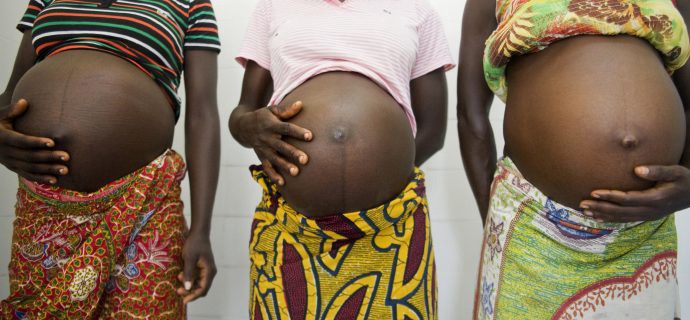Statistics from Eastern Regional Directorate of the Ghana Education Service (GES) indicate that a total of 691 teenage girls returned to school either pregnant or after given birth as at May this year.
The report, representing 27 Municipal and District assemblies, showed that whiles 477 girls went back to school pregnant, 214 had given birth.
Kwaebibrem District recorded the highest with 53 pregnancies followed by Kwahu South and Upper-Manya Krobo districts with 42 cases each.
The Eastern Regional Statistics Officer of GES, Godfred Dzeke, disclosed this during a review meeting of the Back-to-School Advocacy Campaign in Koforidua.
He noted that the statistics excluded six districts - New Juaben South, Asene Manso Akroso, Kwahu West, Birim Central, Lower-Manya Krobo, and Okere.
He explained that all the 33 MDAs in Eastern Region recorded teenage pregnancies, but at the time of collation of the report, six districts had not submitted their reports.
The “back-to-school campaign” was launched by GES in 2021 as an intervention aimed at getting all students to return to school and continue their education after almost a one-year break from academic activities due to the Covid-19 pandemic.
The Girls Education Unit had been spearheading various interventions under the campaign, focusing on sensitisation by engaging identifiable stakeholders, setting guidelines on prevention of pregnancy among girls and facilitation of re-entry into school after childbirth.
The Eastern Region recorded a total of 1,018 teenage pregnancies in 2020 and was ranked the second region with the highest number of teenage pregnancies after Ashanti Region.
This was attributed to many factors including the closure of schools for nine months due to the Covid-19 pandemic.
Madam Patricia Brago Gyamfi, Eastern Regional Girl Child Education Officer, said the campaign sought to raise public awareness on the need for children, especially pregnant girls and those who had given birth, to return to school after the long break.
She said the campaign had been successful but more efforts were needed to clear impediments on the way of those pregnant girls and lactating mothers, and therefore called on stakeholders particularly parents to support girls who have delivered to return to school.
She debunked the notion that the campaign would encourage more girls to get pregnant, adding, preaching prevention and abstinence were part of the campaign.
She also said girls were being strongly advised to stay focus on their academic studies as a holistic approach to achieving gender parity.
Latest Stories
-
Kudus’ advertising board celebration to debut on EA Sports
17 mins -
Glovo’s operations will end tonight
17 mins -
Mahama dismayed at loss of $190m due to PDS scandal; vows to prosecute culprits
51 mins -
Limited Voter Registration: SHS students threaten to boycott exercise, return to school over registration woes
60 mins -
Government to empower universities to undertake mineral exploration – Bawumia
1 hour -
Improve your system of registration – Majority Leader to EC
1 hour -
E-cedi will be the ultimate weapon in corruption fight – Bawumia
1 hour -
Anti-LGBTQ+ bill lawsuit: Supreme Court should have given a specific date for next hearing – Dafeamekpor
1 hour -
Ghana to become first blockchain-powered government in Africa – Bawumia
1 hour -
GAF advocates for more women to be enlisted into the military
2 hours -
Fifa faces legal threat over congested calendar
2 hours -
Nobody will continue your legacy; not even Bawumia – Akufo-Addo told
2 hours -
Corruption Fight: Blockchain technology to make government data tamper-proof – Dr Bawumian hints
2 hours -
Chancellor’s Cup: KNUST play AAMUSTED in a soccer match to honour Asantehene
2 hours -
Anti-LGBTQ+ bill: AG’s request for live telecast of proceedings is in the right direction – Kweku Paintsil
2 hours

